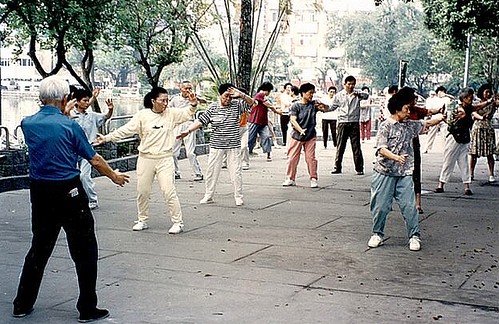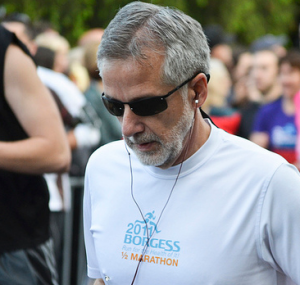Elderly Exercises for a Better Memory – Part 2 of 5
There are a number of aspects of our life that we can change so that we can maintain our memories and keep our brain in gear as we get older. The main 5 factors we will cover in this series are:-
1) Diet
2) Exercise
3) Health
4) Lifestyle
5) Cognition
Exercises For Older People

There are many different exercise programs and routines recommended for old people, some which have been mentioned in a previous post on our website however there are specific recommendations from health professionals for those who are elderly and want to maintain their wellbeing.
Walking or Running for Exercise in the Elderly

According to the NHS Guidelines for Health of those aged 65 years or older a mix of moderate activities each week is recommended to maintain health in old age. Exercise has many benefits as we all know, but when do we take notice of following a doctors advice to incorporate certain activities into our daily life.
The NHS recommendation for those who want to maintain or improve their health is as follows:-
An equivalent mix of moderate and vigorous-intensity aerobic activity every week (for example two 30-minute runs plus 30 minutes of fast walking), and muscle-strengthening activities on 2 or more days a week that work all major muscle groups (legs, hips, back, abdomen, chest, shoulders and arms).
Source:http://www.nhs.uk/Livewell/fitness/Pages/physical-activity-guidelines-for-older-adults.aspx
If you are not fit enough to start running you could try a gentle walk. A post-meal stroll or a little walk up to the shops, can help to boost your mood, and keep you feeling flexible. Even better is to share a walk with friends so that you can both get the benefits. The help that walking gives to the body is matched by what it does for the mind as according to General Practitioner Dr. Ragda Mogdil:-
Some studies suggest that regular exercise promotes the growth of new cells in the brain and improves cell and tissue repair mechanisms, reducing the risk of dementia. Source:Ageuk.org
So, a walk a day, perhaps just for a mile at a time, can help maintain the circulation through the brain which keeps it fed with nutrients, and so keeping you going well.
This week is National Get Walking Week 4th to 11th May so what better time to give it a try.
For more information on short walks for health this week see the Ramblers website here.
Chair Exercises for the Elderly
If fast or slow walking is too much for you then you can try seated chair exercises to give your body a full muscle workout whilst remaining seated. This causes less stress on the joints and is not as aerobic an activity as our first activity above. There is more of a focus on joint mobility, muscle strength and balance with seated chair exercises, which have been designed to provide a routine that is easy to follow for older people.
For a fun and lively seated chair workout for the elderly you can look on youtube for a number of different routines. There’s a video of one below you might like. Why not mix and match them as you try them out to find your favourite moves?
Tai Chi
Tai Chi the ancient Chinese Exercise System can help the elderly with balance as well as remaining calm. By mastering the movements you would be able to have better co-ordination, relaxation and a feeling of accomplishment to help with self -esteem. A simple tai chi exercise which can be done sitting down is called hold the balloon. Imagine holding a large balloon or beach ball in both arms out in front of your chest. As you breathe in imagine the ball grows slightly pushing your palms away from each other. As you breathe out they move back to their original position. just follow the in and out of your breath like this for a minute or two.
Many older people practice Tai Chi not just in China, but around the world, and DVD’s are available for use in the home to help you to learn it for yourself.
An example introductory video which is a free introductory 45 minute lesson with a renowned Tai Chi teacher called Paul Lam is below. Why not give it a try to see if it will help you?
Did you like our suggestions to help with exercise? Any that you have tried and found worked for you? Let us know in the comments if there is something that you would like us to cover specifically and we can arrange for our research team to find out all the facts.
